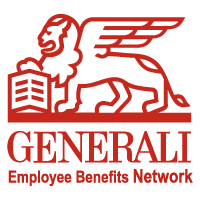Mental health support: digital vs analog

What we lack in the propensity to talk though, we make up for in our eagerness to 'surf'. 76% of the UK adult population accesses the internet every day according to Ofcom. On average, internet users aged 16 and over spend more than 20 hours online each week and more than 70% have a social networking profile.
It stands to reason then that in order to reach a wide audience, help improve access to mental health services (including online self help) and reduce stigma, the use of IT in the shape of digital mental health services is essential.
The crisis is becoming critical
The size of the potential audience for such services was highlighted recently by Business In The Community (BITC). The business-led charity's National Employee Mental Wellbeing Survey found that stress accounted for 43% of all working days lost due to ill health and for 34% of all work-related ill health cases, yet 95% of employees cited a reason other than workplace stress for their absence due to stigma.
Such is this barrier to getting help that Prime Minister Theresa May in January this year promised to tackle the stigma around mental health, as outlined in an article in The Guardian. Only a few months later, hospital bosses reported that mental health services were so overwhelmed that the Prime Minister's pledge to turnaround them around was at serious risk, with 9 out of 10 mental health trusts admitting they're not managing demand.
Take the Employers Pledge
In the meantime, charities Mind and Rethink Mental Illness are running England's biggest programme to end stigma and discrimination against people with mental health problems. Entitled 'Time to Change', this programme aims to empower people to speak openly about their own mental health experiences as well as changing the attitudes and behaviours of the wider public.
It encourages companies to sign the 'Employers Pledge'. In doing so, they join a network of employers in England across all sectors, who are working to tackle mental health stigma and to keep their staff well for work. The programme offers lots of free advice and support on ways to build on the commitment. Find out more here https://www.time-to-change.org.uk/get-involved/get-your-workplace-involved/employer-pledge.
BITC offers free employer toolkit
Additionally, BITC offers a mental health toolkit for employers. Developed in partnership with Public Health England, the free toolkit can be downloaded from the BITC website https://wellbeing.bitc.org.uk/all-resources/toolkits/mental-health-employers.
Primarily geared towards small to medium sized enterprises (SMEs), BITC says that for larger organisations, the toolkit is also a useful resource to share with businesses in their supply chain and across their network. It includes useful checklists to ensure companies are doing everything they could and should with regards to mental health support. Plus support is provided in: understanding legal obligations; identifying and prioritising objectives; building a business case and action plan for the year ahead; and communicating the plan to employees.
Meanwhile, it would be advisable for employers to take a look at what kind of mental health focused interventions they already have in place. Many employers will probably already have group income protection (IP) for example and this comes with a whole host of interventions built in. In addition to being available to the employee, some providers will also extend these services to the families of employees, including dependant parents as well as children.
Digital & analog support via EAPs
Not everyone will feel like they need or are ready to talk to someone for professional help. An alternative is to engage with one of the many online resources that are available via an Employee Assistance Programme (EAP), a service included as part and parcel of most - if not all - group IP plans.
The UK Employee Assistance Programme Association (EAPA) estimates that more than half the working population currently have access to an EAP but significantly fewer are taking advantage of the confidential mental health support available 24/7, 365 days a year. This is the kind of support, outlined below, that could be playing a vital role in alleviating some of the pressure on NHS mental health services, whilst also helping employers manage absence and promote positive mental health wellbeing in the workplace.
- Online self-help - this could include anything from using online self-management guides to access general information and advice - such as stress resilience, mindfulness, sleeping well, improving work/life balance and dealing with bullying in the workplace - to online programmes for more direct support. Available via the internet and smartphone apps, such resources can be used in the privacy of an employee's own home, on their own schedule and pace and there is no waiting list.
- Interactive programmes - Sometimes called 'E-therapies' these programmes are also accessible via the internet or mobile devices and involve users completing modules or exercises over a period of time. This is supported by professional feedback via remote (ie instant messenger or Skype) albeit personalised and direct contact with a therapist. These programmes usually use cognitive behavioural therapy (CBT).
- Telephone counselling - If and when an employee feels the need to talk to a professional directly, telephone counselling including support and CBT, where appropriate, is available via the EAP.
- Face-to-face couselling assessment - This may also be given over the phone as necessary and referral made to HR where appropriate.
- Blended care - This involves a combination of face-to-face treatment (usually available via the EAP provider but via referral, as above, and at cost to either the employer or employee) with online sessions. This could be online treatment sessions with structured delivery and monitoring of the core treatment information and exercises, alongside additional face-to-face sessions. In the face-to-face sessions, therapists can offer customised treatment by responding to the patient's needs, problems or wishes in real time.
Virtual or artificial intelligence doctors
In addition to all of the EAP services outlined above, an increasing number of employers are now offering their employees access to virtual or artificial intelligence (AI) General Practitioners (GPs).
The services available vary from provider to provider. Typically they deliver primary healthcare through a mobile app, by providing an AI 'virtual doctor' to analyse symptoms and offer medical advice. They also allow patients to book face-to-face appointments with a doctor online, ensuring access to video or voice consultation as and when needed.
From a mental health perspective, such services can be incredibly useful as they allow employees to access GP support as and when needed, including referral into appropriate services. According to some industry commentators, these kind of services are expected to largely replace the high street GP in as little as 5 years' time.
Health assessments
Health assessments help employers raise awareness of the importance of lifestyle factors in staying healthy and happy, whilst also providing actionable outcomes and support.
According the latest Chartered Institute of Personnel & Development (CIPD) Absence Management survey (2016) health assessments are recognised as a preventative tool but only by less than a third (29%) of respondents and 9% of those said access was dependent on grade or seniority.
Recognising this, the providers of health assessments are now offering a variety of different options - from basic health checks to executive level assessments - that can be tailored to corporate and individual needs and budgets.
Mental health training
When it comes to reducing and removing stigma in the workplace and ensuring individuals get the help they need, it's now widely recognised that it's essential to try to normalise the problem by opening up the conversation in the workplace. This can be achieved with the help of practical, skills-based training delivered by professionals.
Support can be tailored to company need, from information and awareness to essential skills for line managers and bespoke sessions. Learning outcomes are also tailored to need and may include: understanding what mental health is; challenging myths and assumptions; how to hold conversations about mental health; facilitating return to work after absence; making reasonable adjustments; developing workplace guidelines to comply with legal requirements; building networks of mental health champions.
Personal wellbeing apps
Ultimately, empowering individuals to live healthier lives - namely self care - is the key to lasting engagement and positive mental health. Personal wellbeing apps aim to achieve this are now available, either on a standalone basis currently or included with some group IP plans very soon. Although these health platforms differ in quality and comprehensiveness from provider to provider, the ultimate goal is generally to ensure that users take control of their health and wellbeing by connecting all their health and fitness data.
There are now many ways to track individual health and fitness, such as Garmin devices and the Apple Watch, but they all work independently and fail to provide an overall and connected picture to the user. Personal wellbeing apps aim to rectify this by pulling in data from all these devices and turning it into one big data dashboard to help users better understand connected trends in their behaviour.
Users can set specific goals, such as sleep improvement, and choose the information they want the app to evaluate. It will then set small daily challenges to help users achieve the goal.
There's also the potential of the providers of such apps to work with insurers and employers to identify trends, allowing for the implementation of targeted solutions.
Talk to your insurer
As mentioned earlier, many of the services outlined above may already be built into existing group IP plans. Where they aren't, it's worth noting that some insurers may provide financial support to an employer to help introduce wellbeing initiatives where a need is identified.
Ultimately, as highlighted by BITC as part of its mental health toolkit, all organisations need to take steps to proactively incorporate better management of mental health into the everyday working environment and it should be the market of every responsible business to talk openly about mental health.
An integrated effort will not only help lessen this national problem, but will also help do much to strengthen corporate reputations. According to the results of Mind's first annual Workplace Wellbeing Index, 60% of employees said they'd feel more motivated and more likely to recommend their organisation as a good place to work if their employer took action to support mental health and wellbeing.
Simon Thomas is director UK Employee Benefits, Generali.
This article was provided by Generali.
Supplied by REBA Associate Member, Generali Employee Benefits Network
Generali Employee Benefits' solutions are to protect and enhance the wellbeing of their workforce.







